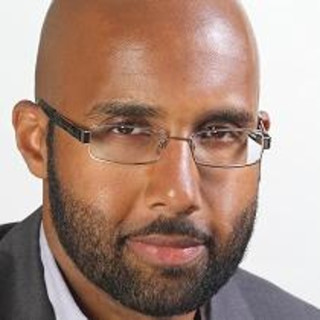For many years, I worked as an ER physician, but eventually it stopped feeling like the right path for me. After finishing my emergency medicine residency, I was happy to practice independently while teaching residents and students. However, as the years passed, whether I was working in the ER or in urgent care, I experienced a lingering restlessness. I asked myself, “Is this what I want to do for the rest of my life?” and could not envision a contented future still working shifts 20 years from now. In the seasons of discouragement, I kept telling myself, “Just push through… this too shall pass.” But it didn’t.
And yet, there was one other thing that didn’t pass: my calling to use my medical degree outside of the realm of clinical medicine — specifically in medical writing, with an emphasis on patient education. Eventually, what began as a nagging urge to transition grew into a fuzzy idea, which then matured into a concrete plan. I am now a freelance medical writer.
For many physicians, there is often hesitancy when looking outside the contours of clinical medicine. One hindrance is fear of losing the “doctor” identity. Yet the beauty of obtaining a medical degree is that you will always be a physician whether or not you’re currently practicing. If all physicians are members of a figurative body, different parts do different things but all are necessary for proper functioning of the whole. One physician serves others by operating in the OR, another by working in research or a lab, and another by writing a book, to give just a few examples.
Accordingly, even though I am transitioning away from my clinical career, I am still a doctor at heart. In fact, it is my specialized clinical training that has specifically equipped me for nonclinical work. You see, in many instances in the ER, I got to reach people, but often when it was too late: i.e., when their disease had already crossed a tipping point. Yes, the U.S. health care system offers excellent care when you are sick, and patients in the ER often receive state-of-the-art treatment with access to a host of specialists. But this paradigm involves treating problems only after they’ve become a medical emergency. This is one of the reasons why I chose to educate patients through prose: to help dodge catastrophic outcomes before they arise.
Another hindrance for physicians contemplating career changes is a lack of self-belief. But bear in mind that if you have what it takes to become a medical doctor, then you are already predisposed to excel in other endeavors. Rather than throwing away your career, you are simply bringing the extensive education, experience, and skills you already have to bear in another field.
Below you’ll find specific examples of the ways your medical training can help you excel in nonclinical areas.
Dependability
Health care has long been considered a respectable and noble field, and the professionalism of physicians validates this assessment. Doctors have a reputation for getting things done because we take responsibility for our patients and put in the work to ensure positive outcomes. This not only commands respect but also translates in the nonclinical world as trustworthiness and reliability. The bottom line is, if you are able to run a code, then you can be depended upon to meet a deadline and complete assignments.
In the medical writing world, I’ve taken the oath not only to “do no harm” but also to “do a good job.” My clients are depending on me, and since they came to me for help, I am obligated to get the job done. As the saying goes in my new line of work, “It’s far easier to keep an existing client than to get a new one.” Dependability has a direct correlation to retention.
Interpersonal and Communication Skills
Medicine involves interacting with and communicating with many types of people. And the longer you’ve been working in clinical medicine, the more real-life practice you’ve had in dealing with others. Additionally, physicians are skilled at extracting relevant data and communicating complex information in clear, digestible bits. If you’ve ever spent time answering a patient’s questions, you understand that what may seem simple and obvious to you is game-changing for the person who is unsure or unaware. Clarity and the ability to effectively convey information are highly valued and seldom go unnoticed.
When I’m working on writing projects intended for a lay audience, I sometimes read my drafts to my seven-year-old. He may be bored but if he gets it, I feel confident that I have effectively delivered my message.
Analytical Thinking
When someone says, “I’m going to see the doctor,” what they usually mean is, “I’m going to see someone who can figure this all out.” Physicians are trained to view one symptom in the context of a whole-person disease and integrate the data to identify the problem and execute an appropriate solution. The world is filled with problems, and physicians are trained to solve many of them.
In my new career, I was once asked to write a blog post about managing polycystic ovary syndrome for a target audience of teenage girls. What I realized based on my medical background is that the mothers of those girls tend to be the ones making the health care decisions (and teens probably don’t read blogs anyway). So what did I do? I wrote the article with the girls and the moms in mind. The client was delighted.
Time Management
Physicians tend to be successful people, and successful people have proper long-term time perspectives. Meaning, they understand that time is their most valuable natural resource and it is imperative to number their days. This looks like having a keen understanding of what is most important right now, while remaining cognizant of what’s coming next.
In the ER, I usually had one (or two) really sick patients, and everyone else would be relatively stable. That meant that each day there was one critical task that was both important and urgent. I’ve applied this triaging to my writing: Each day, I focus on the critical tasks first and don’t move on until they’re complete.
In the end, the choice to quit is up to you. But know that if you do decide to leave clinical medicine, you never quit creating value and being productive. Moving on does not mean giving up; it simply means applying your talents and efforts in a different way, with the same objective in mind: helping others. You may thus begin considering a nonclinical career from a position of abundance, not scarcity. I wish you well, and remind you that wherever you go, your medical degree — and everything it took to get it — goes with you.
Have you ever thought about transitioning away from medicine? Share your experiences in the comments below.
Dr. Sadaphal is a freelance medical writer and board-certified physician with over 15 years clinical experience in both emergency medicine and urgent care. He loves to write and is the founder of the medical writing service ELI Medical.
Image by ina9 / Shutterstock







